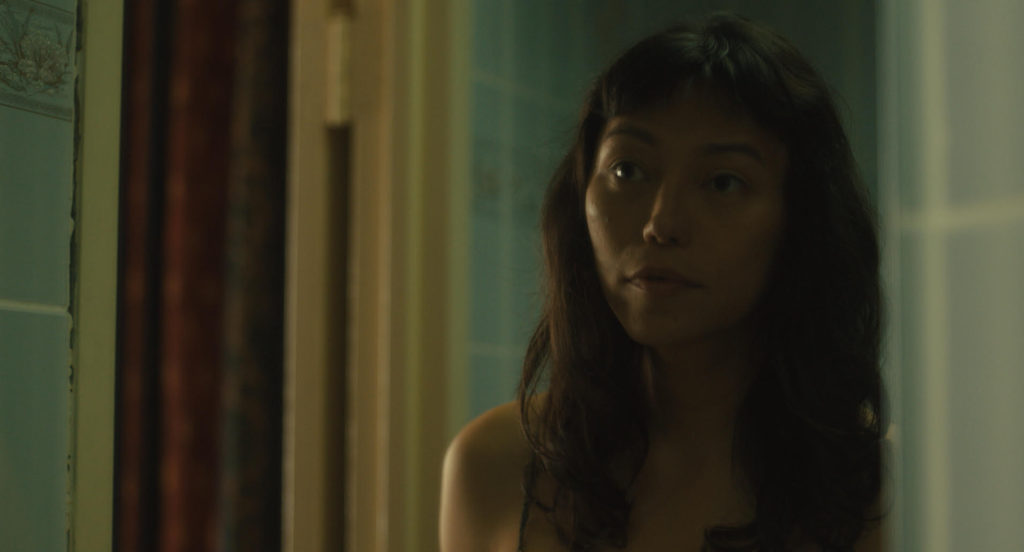Isabel Sandoval is a New York-based Filipina filmmaker. Her feature directorial debut, “Señorita,” premiered in competition at the 2011 Locarno Film Festival, and won the Emerging Director Award at the 2012 Asian-American International Film Festival in New York. Her award-winning second film, “Apparition,” screened at the 2012 Busan International Film Festival and later played at the Museum of Modern Art. With her third feature, “Lingua Franca,” Sandoval is the first transwoman of color to direct and headline a film competing at Venice.
“Lingua Franca” will premiere at the 2019 Venice Film Festival on September 6.
W&H: Describe the film for us in your own words.
IS: It’s a romantic drama involving an undocumented Filipina transwoman and a Russian-Jewish slaughterhouse worker. It’s a sensual, subtle film where the silences and pauses carry more weight than words.
W&H: What drew you to this story?
IS: I’ve always been drawn to marginalized women in fraught socio-political milieus, and this premise strikes me as particularly resonant in these times.
W&H: What do you want people to think about when they are leaving the theater?
IS: I want the audience to experience the spectrum of conflicting, ambivalent emotions that the leads find themselves wrestling with — and struggle to express — in the film.
W&H: What was the biggest challenge in making the film?
IS: As is typical with independent films, it was putting together the financing for the film, but I’m fortunate to have brought on an experienced producer who believed in me and the project, who was able to tap investors.
Besides that, being faithful to my unique, idiosyncratic vision for the film [could] be challenging when [I was] feeling the pressure to go the safer, more commercially accessible route, but I’m glad that I stayed true to my sensibilities.
Getting into both Venice and BFI London Film Festival certainly vindicated that choice.
W&H: How did you get your film funded? Share some insights into how you got the film made.
IS: A significant portion of the production budget was raised through equity investors, the rest of it via crowdfunding and grant money.
What’s key is finding champions who will give you access to the resources — whether they are money, connections, or equipment — to make your film. You sometimes find them in the most unexpected places, so be open and be inventive.
W&H: What inspired you to become a filmmaker?
IS: I feel that we don’t get to choose our passions but they choose us. It’s the same way for me when it comes to filmmaking. As a young kid, I’d been exposed to different types of films and, growing up, I feel that my taste has also gotten more refined and discerning when it comes to films. So, in a way, you can say that I decided to become a filmmaker to make films that I would want to watch myself.
W&H: What’s the best and worst advice you’ve received?
IS: Best advice: Allow yourself room as an artist to make mistakes. That’s how you grow and evolve.
Worst advice: Films that are uncompromising articulations of an artistic vision and those that make money are mutually exclusive.
W&H: What advice do you have for other female directors?
IS: Make the films that only you can make. If you can help it, don’t compromise your vision.
W&H: Name your favorite woman-directed film and why.
IS: “Jeanne Dielman, 23, Quai du Commerce, 1080 Bruxelles” by Chantal Akerman showed me the possibilities of cinema — it’s such an uncompromising, bold vision from a 25-year-old auteur. Akerman transfigured what could’ve been a typical domestic drama into a philosophically and psychologically unsparing exploration of a very particular woman.
W&H: What differences have you noticed in the industry since the #MeToo and #TimesUp movements launched?
IS: I do notice more visible efforts to include women. But it’s important to support the [push] to make women themselves the gatekeepers and decision-makers in the industry to make sure these efforts are sustained.







